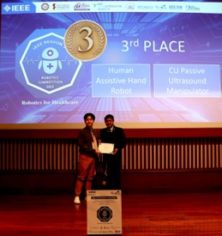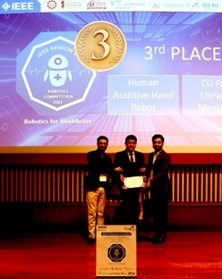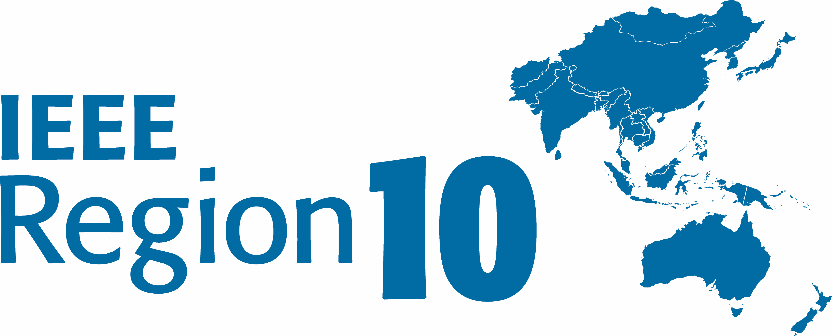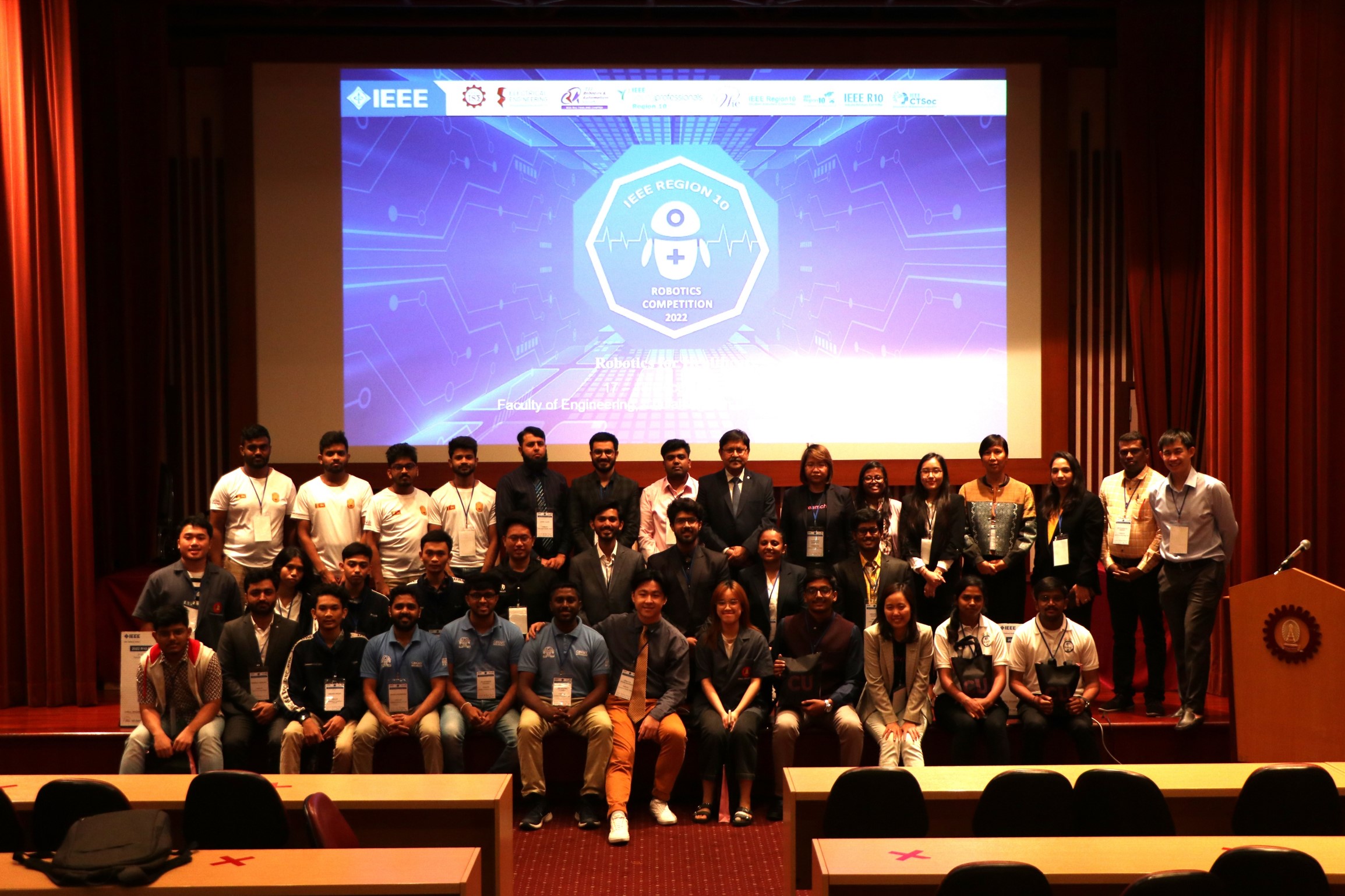One of the major new initiatives of the IEEE Region 10 in 2022 was the launch of a regional-level robotics competition for students and young professional members. The main objective of the R10 Robotics Competition is to create awareness among its young members about the importance of technology for solving real-world problems by harnessing their creativity and capabilities. The competition also aims to promote STEM education among the younger generation. Besides stimulating technical ingenuity, the competition also aims to help all participants to polish their professional and personal skills.
The theme for the inaugural year of the competition was “Robotics for Healthcare”. The competition had the following categories:
● Modelling and Simulations for Robot Development (for undergraduate students)
● Robot Development in hardware (for undergraduate students)
● Robot Development in hardware (for postgraduate students and young professionals).
● Innovative Robots Development for Healthcare and Humanitarian Applications (for all IEEE student members and young professionals)
A team of dedicated volunteers (http://robocomp.ieeer10.org/team/) worked hard throughout the year to make the new initiative a grand success. The successful organization of the robotics competition, which finished on 17 and 18 December 2022 with final rounds at the Faculty of Engineering, Chulalongkorn University in Bangkok, Thailand, was a momentous achievement for R10.
The 2022 R10 Robotics Competition was organized in three stages. Stage 1 of the competition was organized by local IEEE Sections to select and nominate the best team(s) to go forward in the online R10 competition in Stage 2. For Stage 1, IEEE Sections were also funded to organize robotics activities such as workshops and technical talks for members as well as non-members. Sections were encouraged also to hold robotics hands-on workshops and competitions for school children to inspire young students to pursue STEM. Stage 2 of the competition was held, at R10 Level, as an online event for the evaluation and selection of teams by a panel of judges for the final rounds. The ten teams selected to compete in the final round were:
(1) Student members Ranga Anurag, Pranoop G, CSS Narayana, and Srimedha Kulkarni from the Matrusri Engineering College, Hyderabad, India (IEEE Hyderabad Section),
(2) Student members Belde Nikitha, Sai Varma Poloji, Gangarapu Poojitha, and Vaibhav Chandra Keerthi from the Matrusri Engineering College, Hyderabad, India (IEEE Hyderabad Section),
(3) Student members Wahyu Alfani, Muhammad Sofyan Karim, Arokib Darjat Saputra, and Eva Natalia Pramesti from Universitas Dian Nuswantoro, Indonesia (Indonesia Section),
(4) Student members Mahnoor Maqsood, Adam Jeraj, and Mudassir Rafiq from the Salim Habib University, Pakistan (Karachi Section),
(5) Student members Adarsh, Afaq Hussain, Abdul Kubar, and Dheeraj Parkash from the Sukkur IBA University, Pakistan (Karachi Section),
(6) Student member Arkaprovo Acharya, Sabarno Biswas, and Ayush Roy from Jadavpur University, Kolkata, India (Kolkata Section),
(7) Student members Veelochana Sigera, Buddhika Wijerathne, Charuka Samarakoon, Sanath Thilakarathne, Eranda Wijerathna from the University of Ruhuna, Sri Lanka (Sri Lanka Section),
(8) Student members Deepana Ishtaweera, Shalutha Rajapakshe, Dilanka Laknath Wickramasinghe, Sahan Hasaranga Gurusinghe from the University of Moratuwa, Sri Lanka (Sri Lanka Section),
(9) Student members Zahid Ullah, Krit Sanguannapaporn, Rodolfo Lian Paderon, and Noppawan Srikhirin from Chulalongkorn University, Thailand (Thailand Section)
(10) Student members Wasutha Chuengwutigool, Siwakorn Opasjirawiroj, Taetiya Taechamatavorn, and Narit Chatchawanchokchai from Chulalongkorn University, Thailand (Thailand Section).






